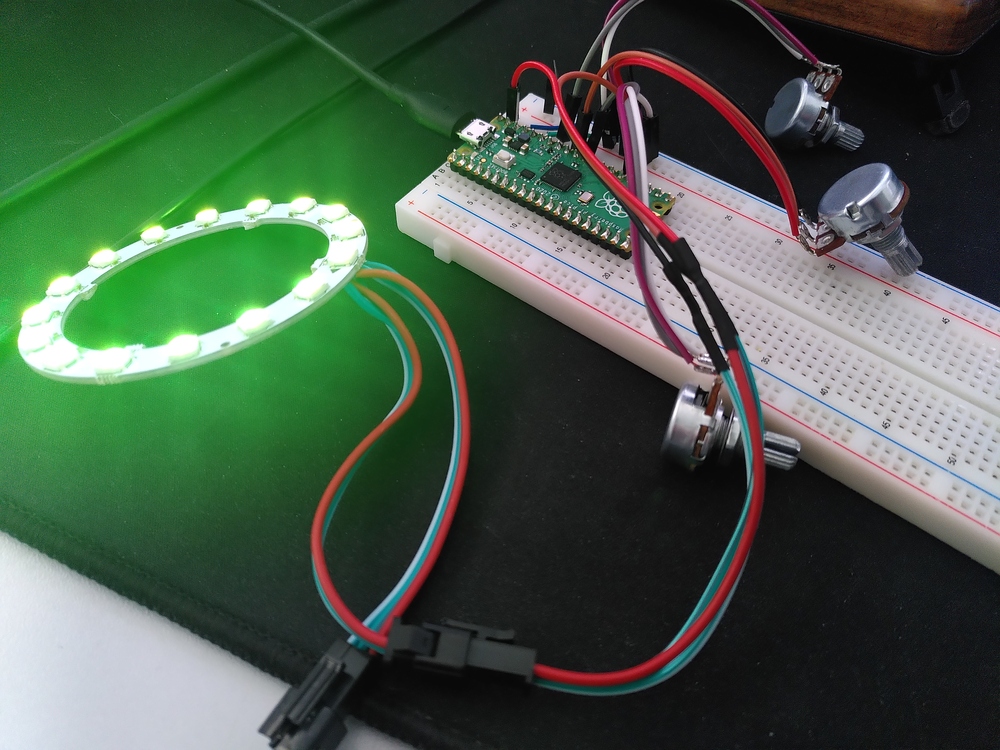The Lamp Part 1: The Prototype
2024-07-21
When I was young my aunt had a lamp with 2 knobs that would change the color of the lamp. I think she still has that lamp. I am not sure how that lamp worked. But it must be at least 20 years old, so I assume, that inside there must be a regular light bulb and the knobs move colored filters in front of the bulb. Maybe I should check out that lamp the next time I visit my aunt.
Anyways: I really like the lamp with the knobs, and I am cheap, so I will build a clone and RGBWW LED rings it is!
Hardware
The hardware is rather cheap, just a Raspberry Pi Pico, because that's what I had at hand and a small 16 LED WS2812 RGBWW LED ring and 3 potentiometers. The potentiometers are connected to the 3 ADCs of the Pico. The LEDs are powered directly from the VBUS pin on the Pico.
The actual body of the lamp is a problem for later. First I have to get the software running.
Software
Initially I wanted to use Rust, but embedded Rust, the RP2040 HAL/BSP/etc. ecosystem and I once again got stuck in dependency hell. So I decided to go back to MicroPython, which works just fine.
The code is rather trivial.
The potentiometers are read via the ADCs. The ADCs are then mapped to a range from 0 for 1. However the values are somewhat noisy and don't truly reach the ends of the voltage spectrum. So I clipped the upper and lower end of the spectrum a bit and scaled the remainder. After that the output was still somewhat noisy, so I decided to dampen that by adding some exponential smoothing;
1 potentiometer is mapped directly to the white value, while the other 2 are used as the Hue and Value in the HSV color model which is then translated to RGB.
So far this works quite well. Here is a picture of what the breadboard setup looks like:
